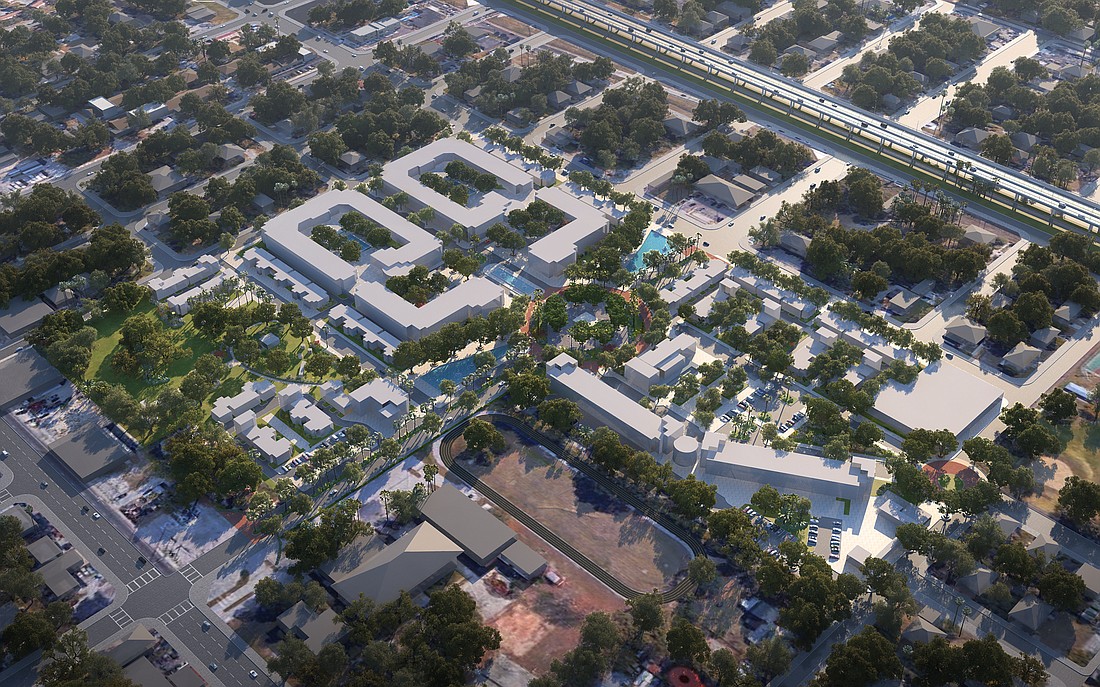The Tampa Housing Authority is preparing to redevelop a nearly 60-year-old public housing complex in the Tampa Heights neighborhood near Ybor City — a portion of which was built on top of the Zion Cemetery.
The development will transform the Robles Park Village public housing complex, which has fallen into disrepair over decades, into a community with a focus on improved housing conditions as well as wellness, job training and education programs, planners say.
The master plan, unveiled recently, calls for multifamily, senior and market-rate housing. In all, the plan calls for 1,012 housing units, up from 433 today.
According to the housing authority, about 85% of the new housing will be affordable rental housing with the rest offered at market rates. Plans also call for 77 townhouses to line the property to be put up for sale.
The master plan also dedicates space for a memorial to the Zion Cemetery, a cemetery for Black residents lost to history. Archeologists found a now-vacated section of the Robles Park complex was built on top of Zion.
The memorial will be overseen and designed by the Zion Cemetery Preservation & Maintenance Society.
One big feature of the master plan is a 50,000-square resource center on the property that will include career education and technical training, mentoring programs, after school care, co-working space along with access to financial services, mental and physical health services.
City officials and developers say residents were consulted throughout the process and they indicated they needed job and educational services.
Robles Park, according to city officials, was built in the late 1950s. Decades later, it is run down, a complex of shabby beige units that probably never saw glory days.
Tampa mayor Jane Castor, a former police chief, says she’s gotten to know residents in Robles Park over the years and that the complex has “outlived its usefulness.”
Tampa City Councilman Orlando Gudes, also a former police officer, says the plan is a “game changer.”
“I worked here with Jane. I understand it. I know when it gets hot in these apartments, it gets hot. When it gets cold, it gets cold.”
Residents, though, will have to wait years to move into their new digs.
David Iloanya, director of the housing authority’s real estate development department, says the project will take about 10 to 12 years to complete. The first step, he says, will be moving residents to new housing, a process that could take up to 18 months. Demolition will follow and could take another year.
During that time, the city will put out requests for proposals as well as work on the funding for the project. To date, Iloanya says, the city doesn’t have a total cost estimate.






